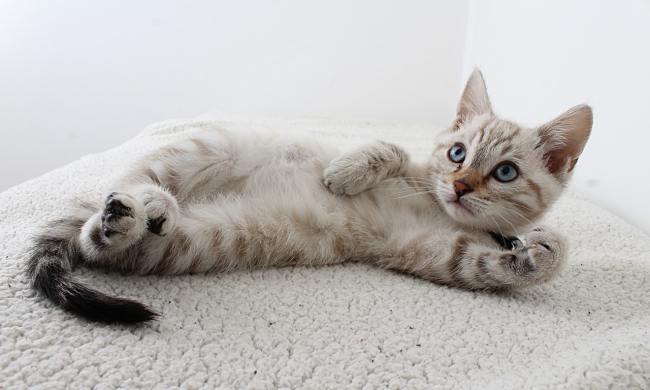You made it through a long day at work and have happily fallen into bed. Then, just as you drift off to sleep, you feel tiny paws tapping your head. Your eyes open to a fuzzy face looming over you. Your kitten's whiskers spread wide, and a cheery "mew" invites you to wake up and play. Cute, right? For the first couple of nights, maybe. Humans need their sleep — and so do kittens. How long do kittens sleep and how do you get them to stay down? Good thing you can teach your cat to sleep through the night.
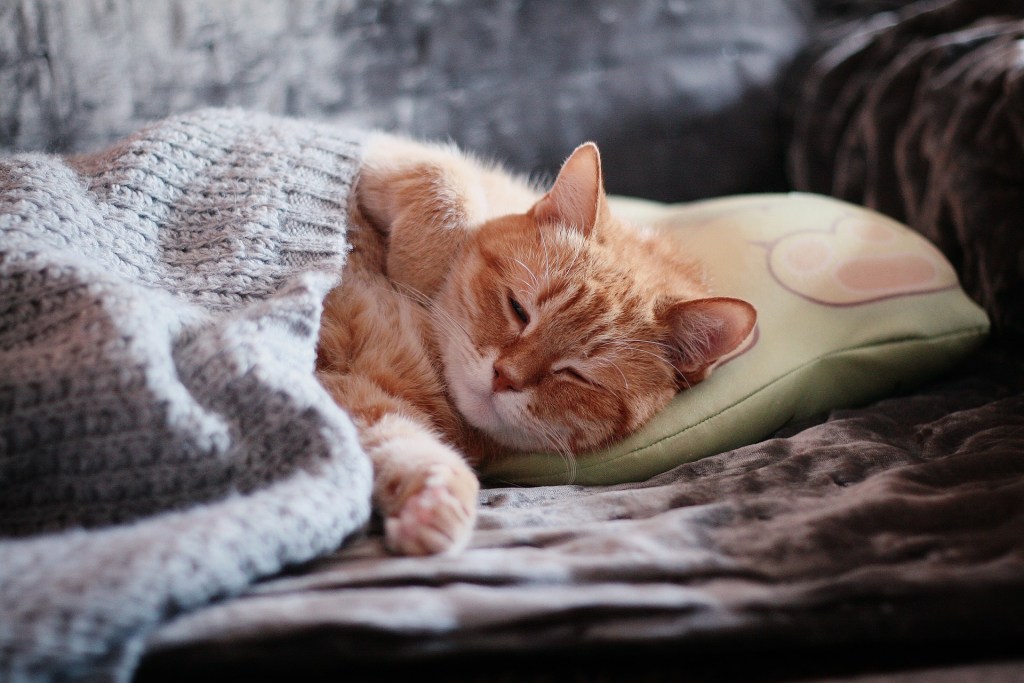
How long do kittens sleep?
If you were rudely awoken in the middle of the night and find yourself dragging through your day on a caffeine infusion, getting your cat to sleep through the night may sound impossible. A little work on your part, though, and you’ll see both of you waking up refreshed and ready to face the day.
Cats and kittens sleep an average of 18-20 hours. If you set up a proper structure, you’ll find 8 of those hours coinciding with your sleep time. How do you manage your cat’s sleep cycle? How do you get a kitten to sleep through the night? You do so by developing a “kitten sleep schedule.”
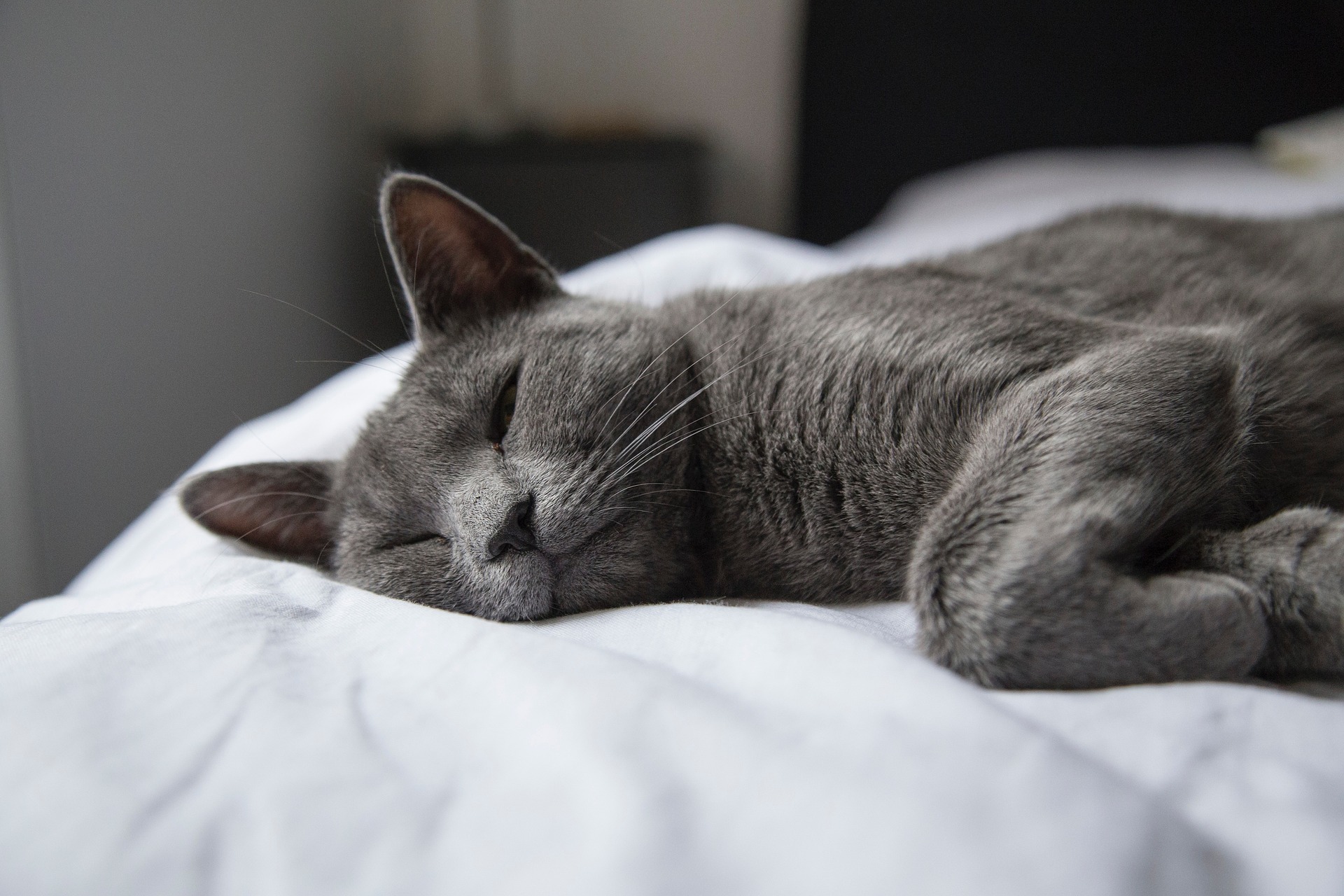
Establishing a kitten sleep schedule
You have a routine every day. It keeps you on track, allowing your body to move from activity to relaxation. You can do the same for your cat.
Important steps to keep in mind when setting up that kitten sleep schedule include:
Step 1: Stick to the schedule.
Whether it means setting out food, scooping the litter box, or breaking out the toys, aim for the same times every day. Your cat will learn when to expect each “task” on the schedule — including bedtime.
Step 2: Add playtime before bedtime.
Have you ever done a workout before retiring for the day? Vigorous activity settles the body down. The same theory works in cats and kittens. The more vigorous the play, the more likely your cat is to sleep through the night.
Step 3: Keep dinner late.
Full tummies equate to sleepy kittens. If you push the evening meal closer to bedtime, your cat’s more likely to stretch out and call it a night.

Creating the perfect kitten den
Cats sleep with humans because we’re warm, or they’ve marked us as their territory, or they need security and companionship. And we love it when our cats snooze with us. A breathy little purr lowers our blood pressure and eases us on our way to dreamland. But until your kitten has the sleep routine down, you’re better off setting up a cozy nest all their own. It’ll discourage the temptation to wake you for a play session.
The more comfortable your cat’s retreat, the more likely they are to sleep through the night.
Step 1: Find a bed with high sides to simulate a secure den.
Step 2: If you have your kitten’s “baby blanket” from the shelter or rescue, tuck it inside for a familiar scent. Otherwise, the fuzziest cushion you have will remind them of “mom.”
Step 3: Add a couple of (quiet) toys on the off chance your kitten’s sleep schedule includes a midnight play session.
If there’s a source of entertainment, your cat will be less likely to wake you. (But skip any toys with bells or squeaks — unless you want an early wake-up call.)
Step 4: Add some accessories that every cat might need during the night.
Step 5: Kittens have tiny bladders, so leave the litter box a short jaunt away.
The longer the journey to the potty, the more awake they’re going to become. But you don’t want the box on top of their bed, as the smell will deter them from their sleeping spot. Try to split the difference on litter box placement.
Step 6: A handy scratching post will earn you points toward Pet Parent of the Year.
As soon as they wake up, kittens and cats need to scratch posts and other objects right after stretching. If they have a scratching post (or cardboard scratcher) handy, they won’t feel inclined to wake you.
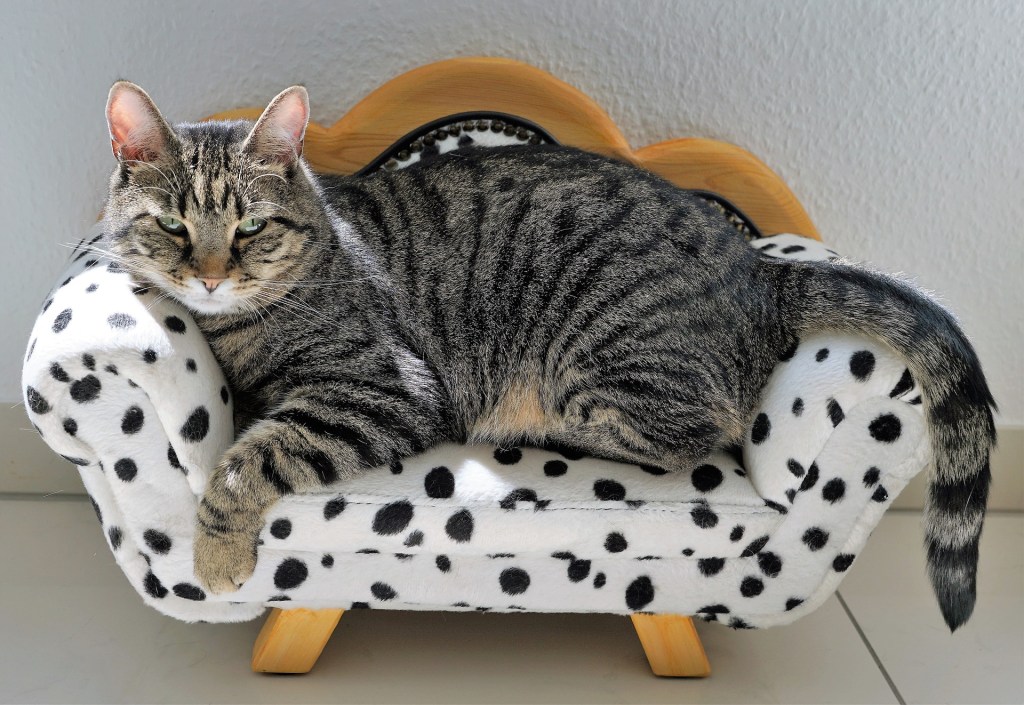
Getting the stubborn kitten to sleep all night
Working toward that kitten sleep schedule does take time. Meanwhile, you’re losing sleep while your furry darling chews on your toes every night. You may have to face the reality of closing a door while your feline adapts to the new plan. This is where you test your willpower. The temptation to open the door at the first sad meow is often overwhelming.
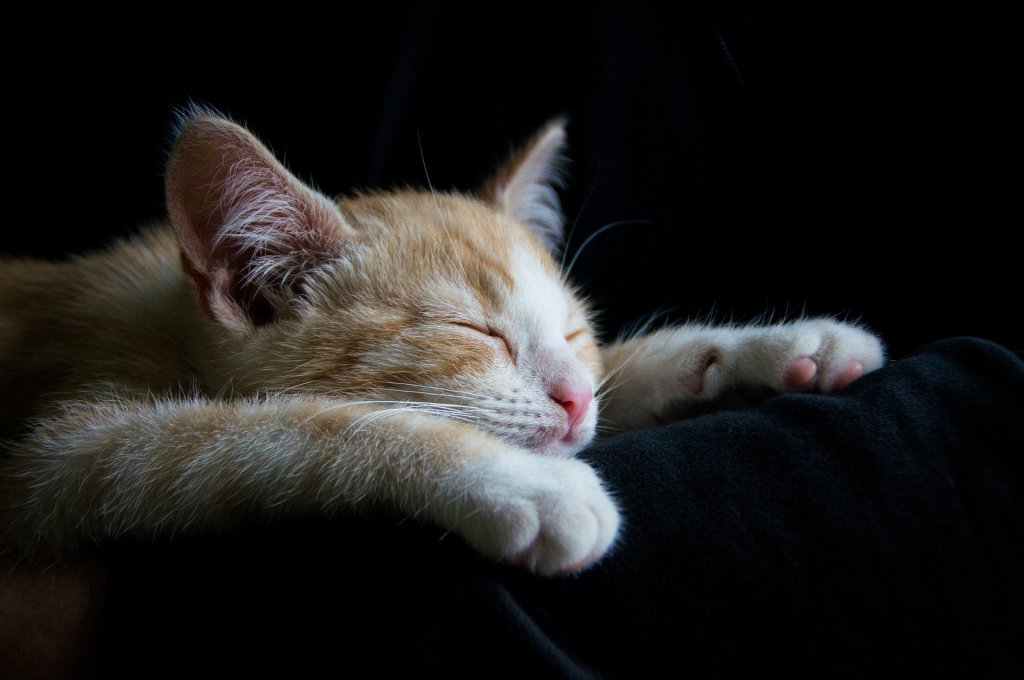
Gently encourage your kitten to sleep
The worst thing you can do when teaching a cat to sleep through the night is to get up and respond. You have to ignore that sad chorus (sounds impossible, but it gets easier). Sometimes you have to resort to placing a vacuum cleaner outside your door as a cat-deterrent.
If you’d rather encourage your cat to stay asleep through the night, make that kitten-sleeping space as inviting as possible:
Step 1: Play feline-friendly music.
Step 2: Set up a night light (cats can see in low lighting, but a soft glow encourages sleep).
Step 3: Consider finding your kitten a companion.
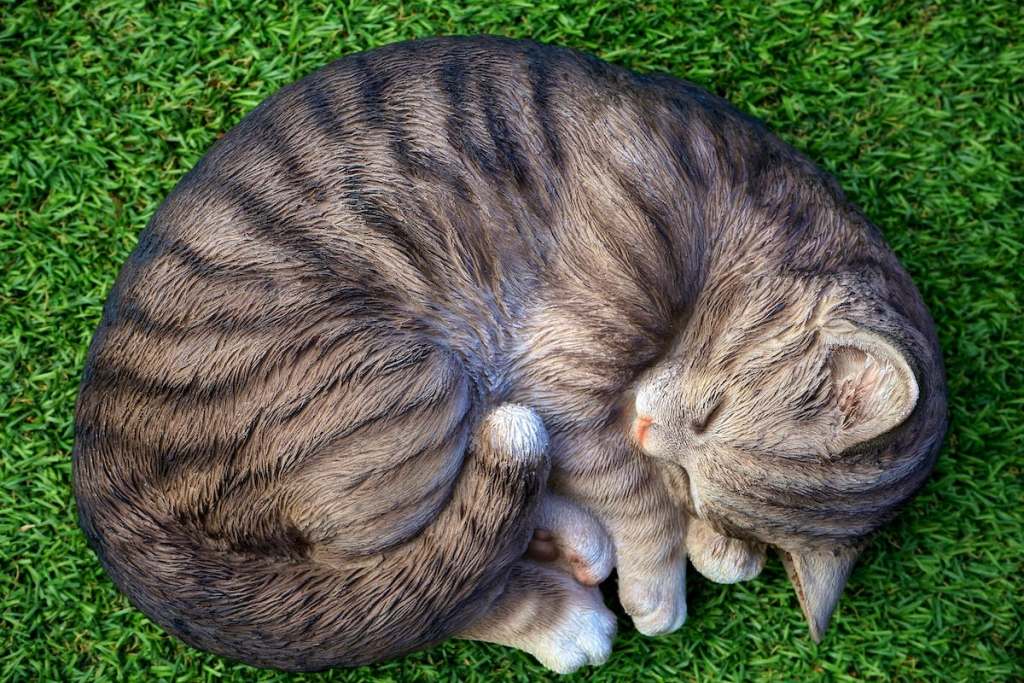
Should you wake a sleeping kitten?
It can be tempting to try to keep your kitten awake during the daytime to encourage them to catch all of their Z's at night, but resist. This trick almost certainly won't work for a few reasons, and can even backfire. Firstly, remember your kitty might nap 20 hours per day. That means their afternoon snooze almost certainly isn't contributing to nighttime wakefulness. Additionally, cats are official crepuscular, as in most active at dawn and dusk. No matter what her sleep schedule is like, she'll get a burst of energy in the evening and very early morning. You can schedule playtimes or feedings around then to help use up that pep. Lastly, a sleep deprived cat can become an irritable one — just like you, no pet wants to sacrifice rest for no reason. Let her take her cat naps and focus on making sleeping at night more appealing.

Sleepy kitten, quiet kitten
No one wants to lose weeks of sleep entertaining their cat. If you’re willing to institute a routine, you can get a kitten sleeping through the night in no time. Varying the toys you use keeps your cat from growing bored during playtime. And making that bed as appealing as possible encourages your kitten to burrow in and sleep through the night. With patience, you’ll regain your rest.
If you’d like to learn more about your kitten, or need a guide on how often to feed kittens, we’ve got you covered.
Sweet dreams!



